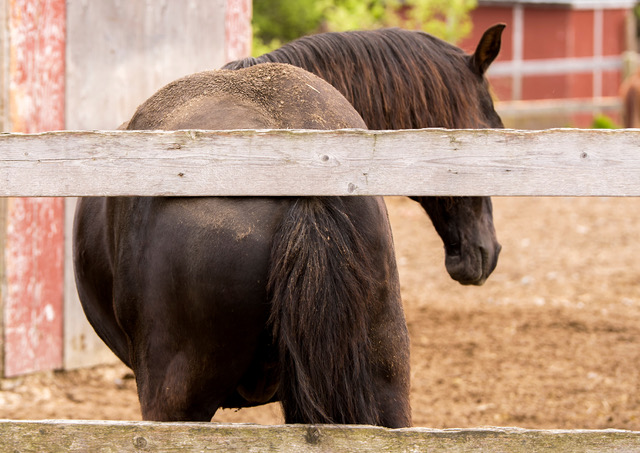Kentucky Equine Research Nutritionist Tackles Food Allergies in Horses on Podcast
By Kentucky Equine Research Staff:
Kentucky Equine Research nutritionist Katie Young, Ph.D., recently sat down with the podcast“Tack Box Talk” for an episode titled, “Allergen and Microbiome Testing: Are They Worth It?”
Because of her background in equine nutrition, Young has encountered several horse owners who have provided lists—sometimes long lists—of feedstuffs their horses couldn’t consume for fear of allergic reaction. For some of these horses, she recommended the only thing she could: air in a feed bag! Humor aside, Young became increasingly frustrated when trying to recommend appropriate diets for horses with so many restrictions, so she learned the ins and outs of allergy testing in horses.
Young explained that two types of tests are available to determine allergy: intradermal testing and serum allergen testing. “Intradermal testing involves injecting small amounts of different allergens under the skin. If a wheal (raised, itchy area of skin) forms at a specific injection site, this is considered a positive reaction for that allergen,” she explained.
Serum allergen testing involves multiple tests on a single blood sample. “This test is based on the idea that horses will have elevated circulating levels of immunoglobulin E that react with specific allergens. If a reaction occurs after mixing a purified antigen with serum from the blood, a positive test is assumed,” she said. “This test is a lot easier than an intradermal skin test because several antigens can be evaluated at the same time without shaving hair and without multiple needle sticks.”
The disadvantages of these tests include procuring purified antigens to use in the testing procedures and separating positive results from false positive results. False positives are especially pervasive in food allergen testing. In addition to these, other complicating factors may be at play, including costs of “allergy shots,” which are usually peddled by the companies that do allergy testing.
Interestingly, according to Young, the American College of Veterinary Dermatology released position statements indicating that neither serum allergy testing nor intradermal skin testing are valid tests to diagnose food allergies or identify specific food allergens.
What do we tell horse owners desperately looking for answers? “Food allergies are actually fairly uncommon in horses. Allergies are usually caused by an environmental factor, such as some plants, trees, bedding, or insects. If you suspect a food allergy, an elimination diet should be performed,” she said.
To start an elimination diet, Young recommends taking the horse off everything but grass hay for four to eight weeks. This includes all concentrates and supplements. Owners may be apprehensive about this, she said, but most horses are not going to fall apart on a hay-only diet for this short period.
“If symptoms of allergy do not go away during this forage-only period, then the owner is likely dealing with an environmental allergy. If, on the other hand, the symptoms resolve, the owner may be looking at a possible food allergy,” Young explained. “However, keep in mind that other causes of allergic symptoms may have also resolved during that time, so further investigation is needed.”
To dig deeper into the allergy, the owner might have to deconstruct the feed to make sure the horse isn’t allergic to individual ingredients. This is done by feeding one ingredient at a time. If, for example, oats are added back into the diet for a week but elicit no signs of allergy, then it can be assumed oats are safe for the horse to consume. A second ingredient can then be added to the oats and fed for a week, all the while assessing the horse for signs of allergy. This would continue until all components of the feed have been fed. The process would then be repeated with any supplements the horse requires.
“Although this can be a time-consuming process, it’s really the only way to diagnose a food allergy in horses,” explained Young.
The episode of Tack Box Talk featuring Young was published on December 13. Tack Box Talk is a place where “equine academic professionals from across the country share their knowledge of all things horse to help you become a better owner.”











